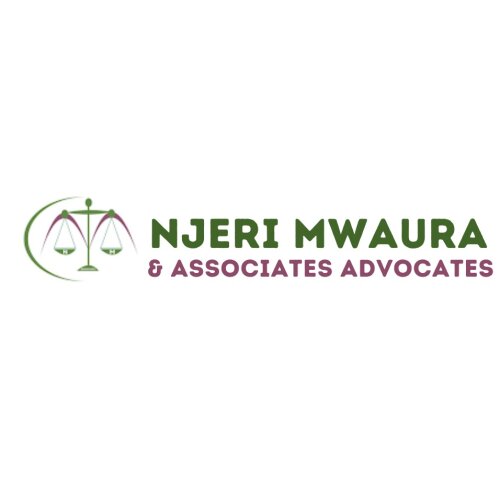Best Housing, Construction & Development Lawyers in Kenya
Share your needs with us, get contacted by law firms.
Free. Takes 2 min.
Free Guide to Hiring a Real Estate Lawyer
Or refine your search by selecting a city:
List of the best lawyers in Kenya
Legal guides written by Adroit Law LLP:
- Kenya Launches Digital Nomad Visa: A Gateway for Remote Workers
- Navigating the Payment System License Maze in Kenya
- Navigating the Complexities of Mining Licenses and Permits in Kenya: A Look into Artisanal and Large-Scale Operations
About Housing, Construction & Development Law in Kenya
Housing, construction, and development law in Kenya is a critical aspect of urban planning and sustainable development, governed by a range of local, national, and international legislations. This field of law encompasses agreements, land use, zoning regulations, environmental guidelines, and construction standards, aiming to facilitate the growth of safe and sustainable cities. Key legislative frameworks include the Housing Act, 1953, the Physical Planning Act, 1996, and the National Construction Authority Act, 2011, alongside various regulations and bylaws established by county governments.
Why You May Need a Lawyer
Legal assistance may be indispensable in various situations including navigating complex zoning laws for property development, resolving disputes in construction contracts, ensuring compliance with housing and safety standards, dealing with land acquisition and titling issues, and handling tenant-landlord disputes. Lawyers specializing in housing, construction, and development help protect rights, provide representation in disputes, and ensure compliance with regulatory requirements.
Local Laws Overview
Key laws relevant to housing, construction, and development in Kenya include:
- Physical Planning Act, 1996: Governs land use planning and development control.
- Land Act, 2012: Consolidates land laws and provides for the registration of land titles.
- Environmental Management and Coordination Act, 1999: Guides environmental management in construction activities.
- Building Code: Provides the technical standards and regulations for constructing buildings.
- National Construction Authority Act, 2011: Regulates the construction industry and ensures compliance with standards and safety measures.
Frequently Asked Questions
What is the process of acquiring a land title in Kenya?
The process involves conducting a search at the Lands Registry, signing a sale agreement, paying the requisite land rates and stamp duty, and undergoing land transfer via registration with relevant local authorities.
How do I resolve a dispute with my contractor?
Disputes can be resolved through negotiation, mediation, arbitration, or litigation. Reviewing the contract's dispute resolution clause is essential to determine the most appropriate method.
What should I check before leasing commercial property?
Ensure that the property complies with zoning and land use regulations and that the lease agreement details proposed use, repair responsibilities, and renewal terms. Due diligence on ownership and any encumbrances is crucial.
What are the penalties for non-compliance with building regulations?
Penalties may include fines, demolition of structures not meeting legal standards, revocation of licenses, and possible imprisonment depending on the violation's severity.
How do I ensure my project complies with environmental regulations?
Conduct an Environmental Impact Assessment (EIA) and obtain an EIA license from the National Environment Management Authority (NEMA). Regular audits and adherence to NEMA guidelines are required.
Who is responsible for housing tenancy disputes?
The Rent Restriction Tribunal and the Business Premises Rent Tribunal handle disputes regarding rent and tenant rights, while the courts may also be involved in complex cases.
What are the requirements for foreign nationals to own land?
Foreigners cannot own freehold land but may lease land for a period not exceeding 99 years, subject to certain conditions and approvals from the relevant authorities. Special economic zones may offer additional criteria.
Is insurance necessary for construction projects?
Insurance is vital to safeguard against risks such as property damage, bodily injury, and financial loss. Coverage might include contractor’s all-risk insurance, public liability insurance, and professional indemnity insurance.
What regulations govern the quality of building materials?
The Kenya Bureau of Standards (KEBS) sets benchmarks for construction materials, ensuring safety and quality. Developers must ensure that materials comply with these prescribed standards.
How are housing cooperatives structured?
Housing cooperatives are member-owned organizations operating under the Co-operative Society Act, which regulate registration, management, and operational standards, focusing on mutual benefit and cooperative principles.
Additional Resources
Some helpful resources include:
- Kenya Law Reports: Legal resource for statutes and legislative updates.
- National Construction Authority (NCA): Regulates the construction industry in Kenya.
- National Environment Management Authority (NEMA): Guides environmental compliance and practice.
- Kenya Property Developers Association (KPDA): Supports property developers with policy advocacy and capacity building.
- Ministry of Lands and Physical Planning: Manages land use and allocative functions.
Next Steps
For legal assistance in housing, construction, and development, consider the following steps:
- Identify a legal issue or the need for advice.
- Research and list potential law firms or legal practitioners specializing in housing and construction law.
- Contact selected firms for an initial consultation to discuss the specifics of your situation.
- Prepare documentation and detailed information relevant to your case.
- Evaluate your options after the consultation and decide on a course of action, or retain the services of a lawyer for assistance.
Always ensure that your lawyer is experienced and registered with the Law Society of Kenya to guarantee quality legal representation and advice.
Lawzana helps you find the best lawyers and law firms in Kenya through a curated and pre-screened list of qualified legal professionals. Our platform offers rankings and detailed profiles of attorneys and law firms, allowing you to compare based on practice areas, including Housing, Construction & Development, experience, and client feedback.
Each profile includes a description of the firm's areas of practice, client reviews, team members and partners, year of establishment, spoken languages, office locations, contact information, social media presence, and any published articles or resources. Most firms on our platform speak English and are experienced in both local and international legal matters.
Get a quote from top-rated law firms in Kenya — quickly, securely, and without unnecessary hassle.
Disclaimer:
The information provided on this page is for general informational purposes only and does not constitute legal advice. While we strive to ensure the accuracy and relevance of the content, legal information may change over time, and interpretations of the law can vary. You should always consult with a qualified legal professional for advice specific to your situation.
We disclaim all liability for actions taken or not taken based on the content of this page. If you believe any information is incorrect or outdated, please contact us, and we will review and update it where appropriate.
Browse housing, construction & development law firms by city in Kenya
Refine your search by selecting a city.

















